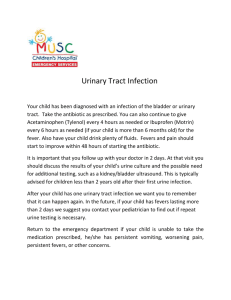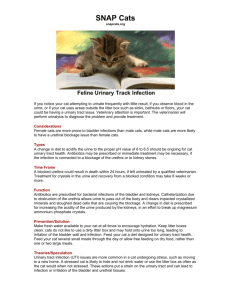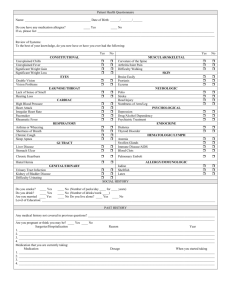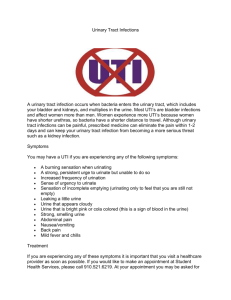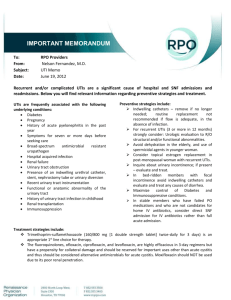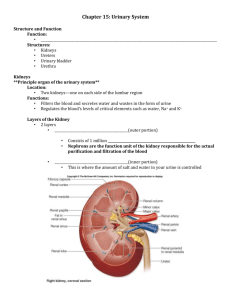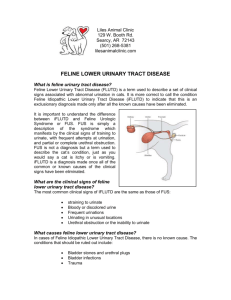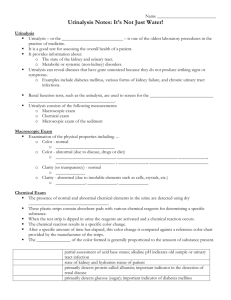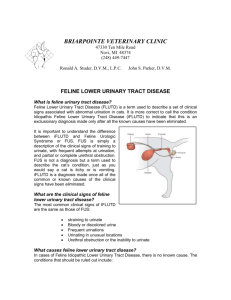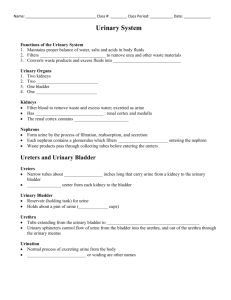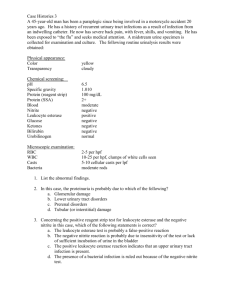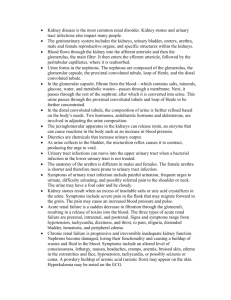Health_&_Safety_files/Urinary Tract Health
advertisement
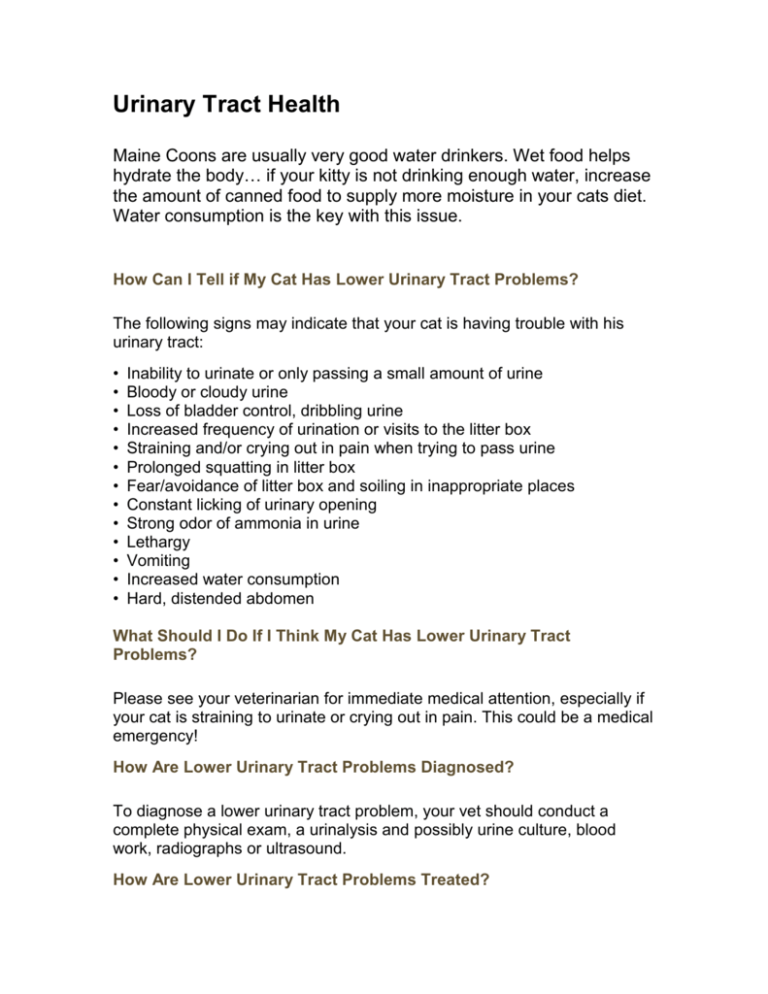
Urinary Tract Health Maine Coons are usually very good water drinkers. Wet food helps hydrate the body… if your kitty is not drinking enough water, increase the amount of canned food to supply more moisture in your cats diet. Water consumption is the key with this issue. How Can I Tell if My Cat Has Lower Urinary Tract Problems? The following signs may indicate that your cat is having trouble with his urinary tract: • • • • • • • • • • • • • Inability to urinate or only passing a small amount of urine Bloody or cloudy urine Loss of bladder control, dribbling urine Increased frequency of urination or visits to the litter box Straining and/or crying out in pain when trying to pass urine Prolonged squatting in litter box Fear/avoidance of litter box and soiling in inappropriate places Constant licking of urinary opening Strong odor of ammonia in urine Lethargy Vomiting Increased water consumption Hard, distended abdomen What Should I Do If I Think My Cat Has Lower Urinary Tract Problems? Please see your veterinarian for immediate medical attention, especially if your cat is straining to urinate or crying out in pain. This could be a medical emergency! How Are Lower Urinary Tract Problems Diagnosed? To diagnose a lower urinary tract problem, your vet should conduct a complete physical exam, a urinalysis and possibly urine culture, blood work, radiographs or ultrasound. How Are Lower Urinary Tract Problems Treated? Because feline urinary problems are so varied and potentially serious in nature, your first step is to get immediate veterinary care. Depending on your cat’s prognosis, one of the following may be recommended: • • • • • • Antibiotics or other medications Dietary changes Increase in water intake Urinary acidifiers Expelling of small stones through urethra Surgery to either remove bladder stones or tumor, or to correct congenital abnormality • Urinary catheter or surgery to remove urethral blockage in male cats • Fluid therapy What Can Happen If a Cat's Lower urinary Tract Problems Go Untreated? Untreated urinary problems can cause partial or complete obstruction of the urethra, preventing a cat from urinating. This is a medical emergency that can very quickly lead to kidney failure and/or rupture of the bladder, and can prove fatal if the obstruction is not relieved right away.
